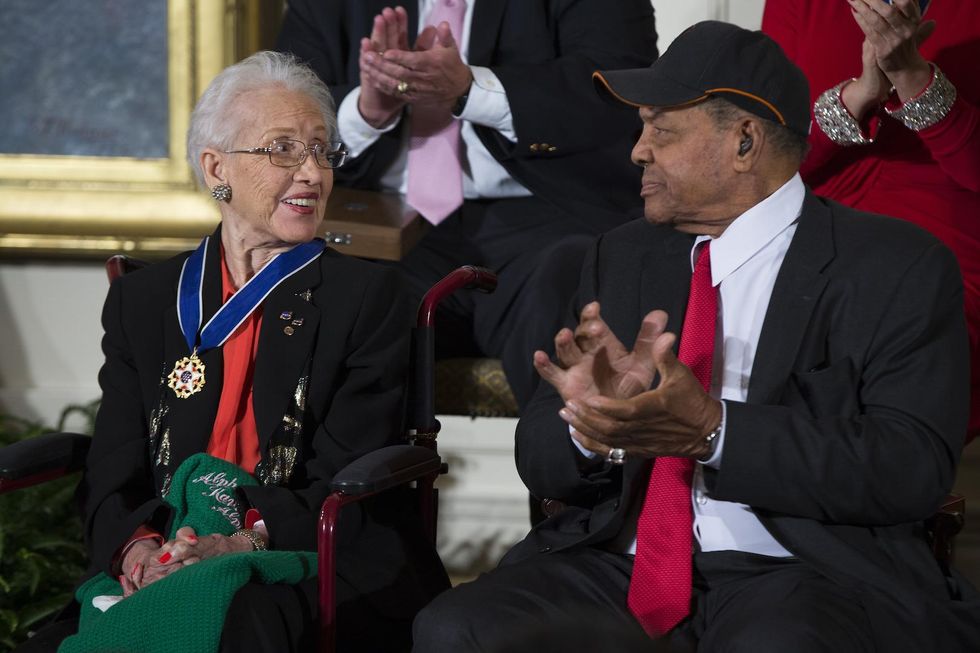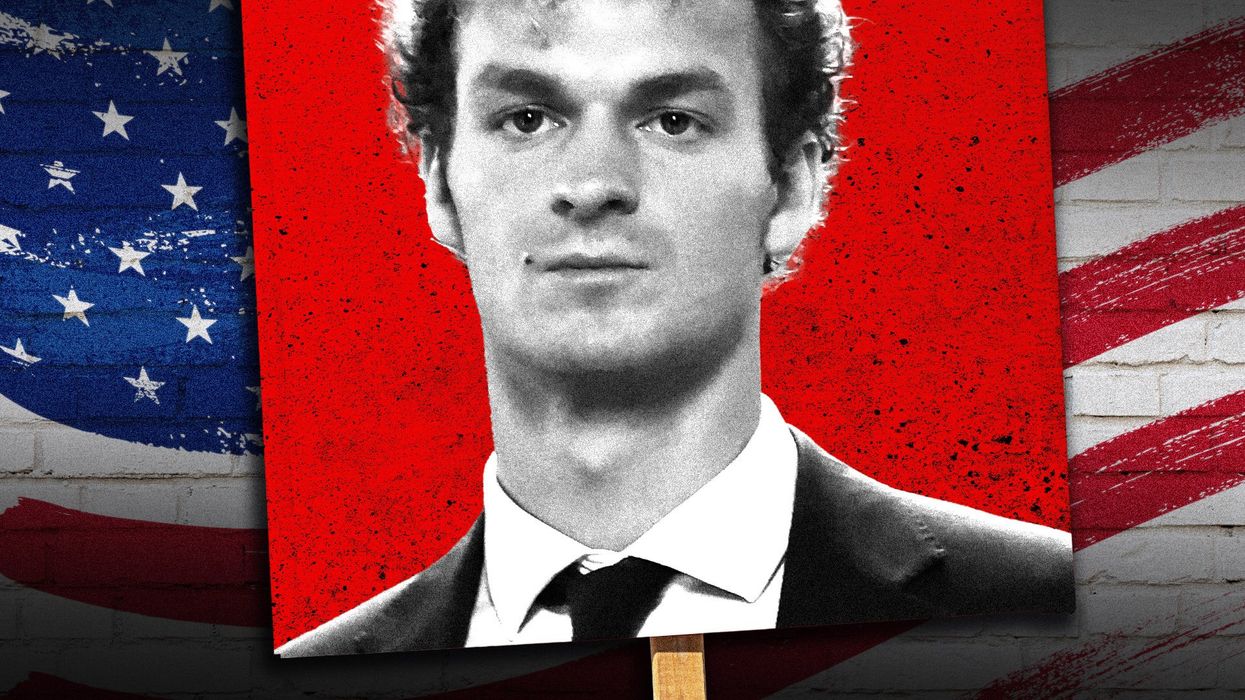
Willie Mays, right, applauds NASA mathematician Katherine Johnson, after she received the Presidential Medal of Freedom from President Barack Obama during a ceremony in the East Room of the White House, on Tuesday, Nov. 24, 2015, in Washington. (AP Photo/Evan Vucci)


